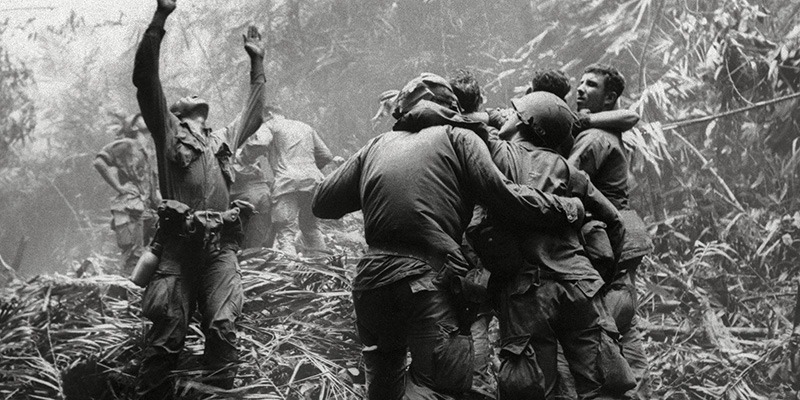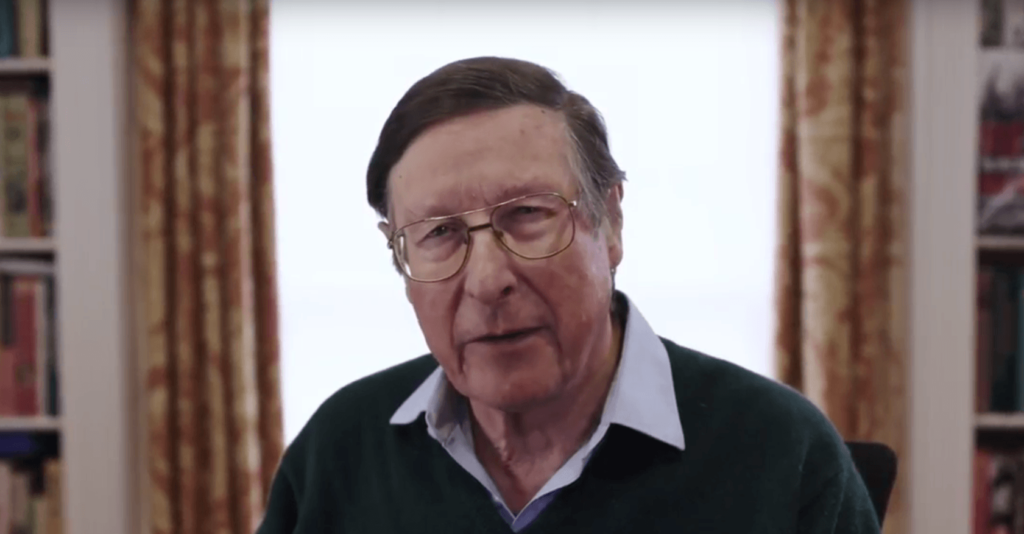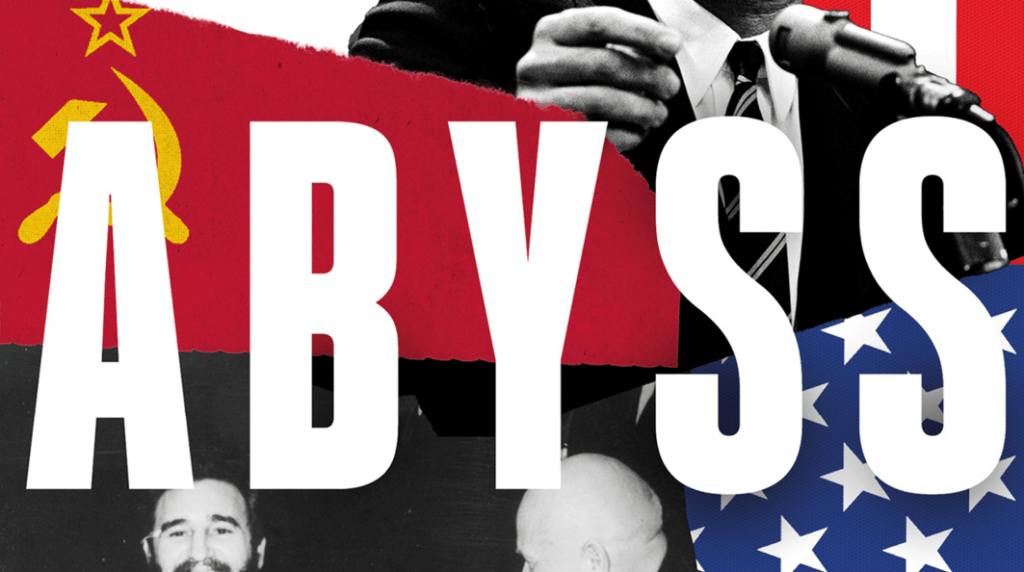As a young journalist, Max Hastings reported on the Vietnam War. In an exclusive extract from his new book, he recounts the reality of life for the soldiers.
If a soldier wanted to stay safe, his best course was to remain absolutely still, preferably in a hole: every movement made him more vulnerable. Yet it was the duty of infantrymen to move. They spent much of their field time seeking out the enemy in platoon, company or battalion strength. For 50,000-odd Americans fulfilling such a role at any one time, exotic Asian nature became the new normal: the brilliant green of rice paddies, darker green of palm groves, small boys leading out water buffalo, farmers plodding with the patience of centuries behind ox-drawn wooden ploughs.
At dusk grunts watched the buffalo being driven back home, flanks caked with mud from their wallows, pretty much like themselves. And somewhere concealed within all this rustic charm, there was the enemy.
Men were sorely tried by humping a load through fierce heat in tough terrain, even before the enemy entered the story. Each carried a weapon; a steel ammo can, used to keep paper and suchlike dry; at least eight magazines and rounds to fill them; four fragmentation and two smoke grenades; four canteens, which were seldom enough — in dry places a man might think it prudent to start out with 20lb of water. Some burdened themselves with extra hardware, perhaps a .45 pistol. As for rations, one infantryman took on five-day recce patrols one can of beans and franks, one of spaghetti and meatballs, four of fruit, three small cans of snacks. Another subsisted on peanut butter and jelly on crackers, fruit and cake. It was no wonder that most foot soldiers lost weight, a lot of weight.
Once they started walking, the bush became ornamented with discarded munitions as sweating newcomers — “cherries” — lightened their burdens. They learnt that only cowboys draped their bodies in M60 machinegun belts, because exposed rounds became filthy rounds, prone to jamming. The surest way to discover the nature of a fellow vet’s service was to ask whether he wore underwear. If he did, he had missed the bad places: underpants bred crotch fungus, so that few men affected them.
British officer Freddy Spencer Chapman entitled a classic memoir of the 1942 Malayan campaign The Jungle is Neutral, and the same was true in Vietnam a generation later: country boys coped best, reared to be unafraid of wilderness — triple canopy foliage, snakes, screaming gibbons. Many Americans, however, were city-bred. It was hard for them to walk easy through thick cover, in which paths were likely booby-trapped. Where visibility was only a yard or two, each man had to keep his eyes intent on the one in front: the careless strayed and vanished.
Most Americans moved noisily. A unit that sought to move fast made as much racket as an elephant herd, snapping branches and bamboo. In heavy and hostile country, a prudent point man might advance only one pace every five or six seconds, ten a minute, three hundred yards an hour. A long-range patrol, religiously dedicated to concealment, could take a day to cover a mile, with the rear man responsible for erasing tracks.
Though an officer navigated by map and Lensatic compass, an enlisted man was designated to count the paces they advanced. The leader — point — did not “break trail”, he simply advanced with infinite watchfulness, leaving those behind to wield machetes. Space — at least five yards between men — was critical, especially in heavily booby-trapped areas: bunching meant multiplying mutilations and deaths. Action seldom started in the middle of a column, which made that a popular place to be. “Drag” demanded as much bushcraft as point — he was rear man, tasked to catch enemy sneaking up from behind.
Some fights started with an air assault on to a “hot” LZ, a landing zone occupied by an enemy who shot back even before infantrymen sprang heavily down from the choppers. One day up near Chu Lai, a notably stoical black soldier named Davis took a bullet as he hit the ground, but kept shooting back. When another wounded man, Taylor, merely lay sobbing, Davis mocked him mercilessly, goading him to use his weapon: “You cryin’ cause you gettin’ ready to die. You dying, and you know you dying. You might as well come on and take some of these gooks with us.” Taylor said sulkily, “I’m not gonna die,” which caused Davis to prod him again: “Why you sittin’ there crying if you not gon’ die? You cryin’ cause you a big faggot.” Then both Davis and Taylor kept shooting until a dust-off [medical helicopter] came.
Twenty-nine-year-old company commander Vince Felletter once lost six men who jumped from a stricken Huey helicopter, only to have the wreck flip on top of them, rotors flailing, which imposed on survivors the ghastly task of sorting body parts. Next night battalion flew a hot turkey meal out to them — “Feeling sorry for us, I guess.” This gesture went awry: the entire company succumbed to food poisoning, and at dawn 14 men were medevacked with temperatures over 103.
On foot, scent could kill almost as surely as noise. Both sides cherished their scouts, some of whom had supremely refined senses. A North Vietnamese soldier named Nga was dubbed “the German shepherd” because, in a comrade’s words, “his nose is legendary. Whenever he says he can ‘smell’ Americans, he always turns out to be right.” Some US officers, especially those leading deep-penetration patrols, barred smoking, so that men instead chewed tobacco. Scout dogs could be an asset, but were vulnerable to dehydration: more than one handler wound up carrying his canine charge.
The chronic wet rusted grenade pins, cans, guns, electrical circuits. The best way to ward off insects was to soak clothing and boots in repellent, but often juice was short. They had no prophylactic for the leeches: men wore steel-spring blousing garters to hold trousers tight, but the crawling horrors got through anyway, their heads boring a quarter-inch into a man’s skin before the pain started. They could be removed with a burning cigarette only at the evening halt.
Booby traps were most often spotted early in the day, when troops were fresh. Sgt Mike Sutton was wading thigh-deep through a swamp when among a heap of cut bamboo he found himself hard up against a tripwire; he never forgot the seconds of cold sweat before he stepped back . . . and lived. The most dangerous time came in late afternoon, when men were filthy, hungry, riddled with bug bites, weary of climbing hills, negotiating swamps.
It was almost always the enemy who initiated contacts, with a burst of fire or a shower of “Chi-Coms” — grenades — that killed one, two, three Americans before they could respond. A Marine wrote: “As tired and bored as you get fighting both fatigue and the heat, all it takes is a shout, or someone moving too fast, and suddenly you have never felt so alert, so alive. Your nose, ears, eyes, working all of a sudden better than ever before. It is a real rush.”
Anything could happen during a contact: riflemen in one platoon put a few rounds over the heads of skulkers hanging back, men “who just didn’t want to do it”. Every platoon had such people. When one company met trouble on Chu Moor Mountain, survivors were shocked to discover that their sergeant, who had seemed a decent guy, “went into shock. He just wasn’t there for us”: the NCO vanished for ever, carrying a wounded man to the rear.
After a killing fight, men tried to gather to say a brief prayer over fallen comrades, although that indulgence had to be abandoned where casualties mounted. The practice of mutilating enemy dead was widespread. An October 1967 episode brought shame on the media: a CBS cameraman handed a soldier a knife with which to sever the ear of a dead communist for the benefit of TV viewers. Both the cameraman and his reporter fled the country rather than testify at the soldier’s subsequent court martial. It was well known, however, that men took such souvenirs.
A unit in the field usually halted in late afternoon, where possible on higher ground, commanding a view. Men finished the day coated with red dirt baked in sweat which it became ecstasy to scrub off with sand in river water, if there was any near by. One officer recalled making his men shave — “I wanted them to think with the cunning of animals, but I didn’t want them to become animals.” Few dared to enforce such discipline, however, especially as the war grew older and sicker.
Most evenings they had to dig, which everybody hated, although it often made the difference between living and dying. Good units sank two-man foxholes 40in deep, cursing the rocks and roots they encountered below the thin surface layer of clay. When rain came, as it so often did, biblical torrents collapsed fighting holes and makeshift poncho roofs, prompting an orgy of obscenities. After they had dug they cooked, usually on a stove improvised from a ration tin punched full of holes, fuelled with small pieces of C-4 explosive that hissed and flared to a white-hot flame. There was trading and bitching about who got to eat what: everybody liked canned fruit and pound cake, while almost nobody relished ham and lima beans. Some men made elaborate messes, for instance extracting the potatoes from a meat’n’potatoes can, mashing them with dried cream substitute, while cooking the meat and gravy in a canteen cup. They brewed instant coffee or cocoa, finished with crackers perhaps spread with melted cheese, shakes of tarragon leaves and onion chips.
After two weeks out, everything tasted the same, and sometimes they thought themselves lucky to get fed at all. Most units occasionally found themselves hungry, although never remotely as ravenous as their enemies. The worst peril was that of exhausting radio batteries, a special risk for deep-penetration patrols. Almost everybody smoked, and cigarettes came in ration sundry packs along with candy, razor blades, toothpaste and brushes, writing paper and pencils. Pills played a big role: they sucked salt tablets, purified water with Halizone that made it taste like iodine, and which still gave them the shits, for which they would take two Lomotil tablets, four times a day. They swallowed daily malaria tablets under a corpsman’s eye, because some men yearned for fever, to escape the bush. In 1967-68, while drug abuse increased, it was mostly confined to the rear: officers and NCOs still had sufficient clout to keep men clean in the field.
During the hours of darkness, most men’s sleep was interrupted by a stint on watch, or if they were unlucky out with a patrol, tiptoeing in their fear of stepping on something lethal, striving to avoid stumbling over a mangrove root or falling off a paddy dyke. Everybody hated night patrols, knowing that their silent-movement skills were imperfect, especially in the dry season when every stick and leaf crackled under the feet even of practised “ghost walkers”. In darkness the communists could move freely into hamlets and villages, knowing that it was unlikely they would find Americans or Southern troops.
Most often, commanders contented themselves with putting out ambushes, anything from a hundred to a thousand yards out. When large numbers of enemy appeared it became a nice call whether to fire, or stay mute.
As a 1967 company commander, Walt Boomer, said: “It was pretty brutish living. We were always on the go — once out for 45 days with no shower. We lived like animals — and didn’t accomplish much. The enemy would either find us on their terms, or occasionally we’d find them on ours: the North Vietnamese soldier knew that if he came square on with us he was going to die. We didn’t understand that no matter how many we killed, it wasn’t going to be enough.”
Extracted in The Times from Vietnam: An Epic Tragedy: 1945-1975



